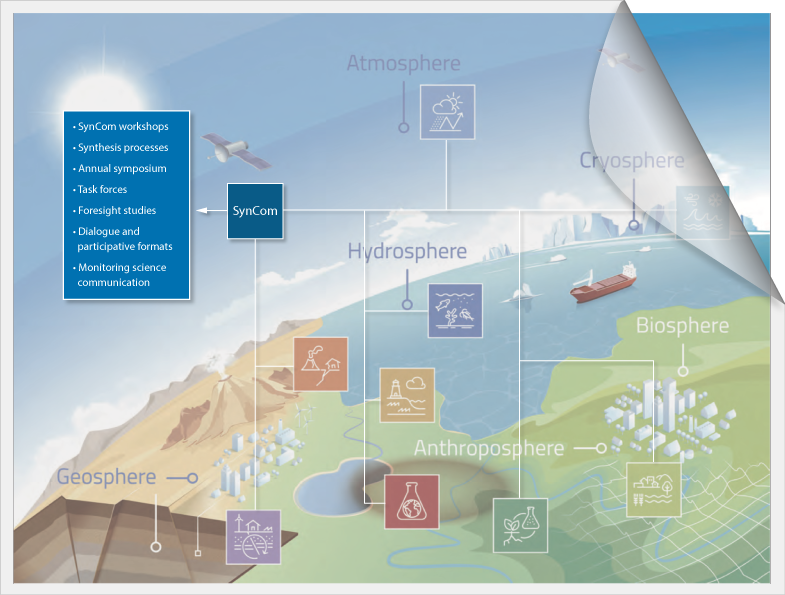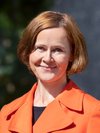Knowledge Transfer "Synthesis and Communication Platform - SynCom" │All Helmholtz-Centers in the Research Field Earth and Environment
SynCom is the abbreviation for the terms "synthesis" and "communication" and thus describes the main task of the new platform. When we speak of synthesis, we mean bringing together work and findings from different disciplines, centres and thematic program focuses, the so-called topics. This goes far beyond the communication of research results. Rather, the SynCom Platform aims to network researchers from the very beginning in such a way that their work contributes in the best possible way to solving the major problems facing society: How can we live safely in an environment that is becoming increasingly vulnerable due to climate change and ever more sensitive infrastructure? How do we protect ourselves from natural hazards? How can we develop more environmentally sound economic practices and land use forms while protecting our natural resources? How do we secure food and health for the world's growing population? How can we slow down the extinction of species? Where will the raw materials and energy for the high-tech society of the future come from?
The Helmholtz Research Field "Earth and Environment" has adopted a single program, "Changing Earth – Sustaining our Future", which takes into account the fact that our planet can only be understood as "System Earth". Humans with their activities and habitats are part of this system.
At the "Topics" level, research is carried out on sub-aspects of System Earth. In addition, joint initiatives, projects and infrastructures play a significant role. These go far beyond individual centres. Complementary to the communication of the participating Helmholtz Centres, the Research Field "Earth and Environment" is, therefore, setting up the Synthesis and Communication Platform "SynCom" in order not only to network researchers, but also to strengthen the dialogue with society. The focus is on policy advice as well as on knowledge and technology transfer.




